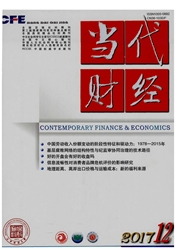

 中文摘要:
中文摘要:
以往研究认为,当公司具有财务杠杆时,股东降低高管薪酬-业绩敏感性的目的是限制高管的风险转移激励,降低债务代理成本。我们认为,这种高管薪酬-业绩敏感性的降低,其目的更可能是股东在利用债权人承担企业业绩较差时高管次优行为的成本。基于中国A股上市公司2007—2012年数据可以发现,高管薪酬-业绩敏感性与负债水平负相关,且高管薪酬粘性与负债水平正相关,很好地支持了我们的观点;而且还发现,股东在利用债权人承担高管次优行为成本的同时,鼓励高管进行风险转移,进一步掠夺了债权人的财富。
 英文摘要:
英文摘要:
The formal researches hold that when there is financial leverage in a company, the purpose of lowering the executive pay-performance sensitivity by the shareholders is to restrict the risk transfer motivation of the executives and reduce the debt agent costs. We believe that the purpose of this kind of reducing executive pay-performance sensitivity is more likely that the shareholders are taking advantages of the creditors who are bearing the costs of the suboptimum behaviors of the executives when the corporate performance is worse. Based on the data of China's A-share listed companies during 2007-2012, it can be found that the executive pay-performance sensitivity is negatively correlated with the level of liabilities, while the stickiness of the executive compensation is positively related to the level of liabilities, which suggest that our view is well supported. It is further found that when shareholders are taking advantages of the creditors to bear the costs of the suboptirnum behaviors of the executives, they are encouraging executives to transfer risks, thus further expropriate the wealth of the creditors.
 同期刊论文项目
同期刊论文项目
 同项目期刊论文
同项目期刊论文
 期刊信息
期刊信息
